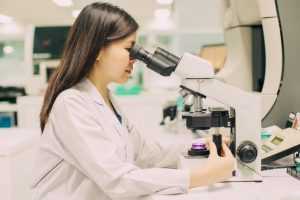 Forensic scientists play a vital role in the justice system by providing important criminal data backed up by science. As forensic science is a broad field, encompassing a number of specialties, a forensic scientist may focus on diverse areas of criminal science such as chemistry, biology, drugs and toxicology. If you are thinking of hiring a forensic scientist, below are the different roles he or she can undertake.
Forensic scientists play a vital role in the justice system by providing important criminal data backed up by science. As forensic science is a broad field, encompassing a number of specialties, a forensic scientist may focus on diverse areas of criminal science such as chemistry, biology, drugs and toxicology. If you are thinking of hiring a forensic scientist, below are the different roles he or she can undertake.
Gather and Analyse Evidence
Forensic scientists visit crime scenes to search and collect possible evidence such as blood, fingerprints, and human skin. They catalog every object they remove and describe them in detail for filing purposes. After preserving each item, forensic scientists analyse gathered evidence at a laboratory. They spend most of their time here as they look at various crime angles such as presence of drugs and DNA comparison. According to a criminal lawyer in Townsville, Queensland, forensic scientists typically accompany police and attorneys.
Describe Criminal Findings
After completing an analysis, forensic scientists explain their conclusions in detailed written reports. These reports become part of official evidence, which a complainant or defendant may use. Prosecutors can also use these criminal findings when building a case, continuing a file, or even looking for wanted criminals. Apart from written reports, forensic scientists can also describe criminal findings in court.
Serve as Expert Witnesses
Forensic scientists can be part of a legal proceeding by joining hearings and standing as expert witnesses. Since they have valuable evidence on hand, complainants and defendants can use their knowledge against the person they are suing or defending from. However, a forensic scientist’s appearance in court requires the advice of an attorney or judge. This is to protect him or her from the law and other dealings that may occur after trial.
Forensic scientists do not only assist investigators and lawyers, but can also stand as witnesses for people involved in a criminal case. The role of a forensic scientist, with no doubt, is diverse.